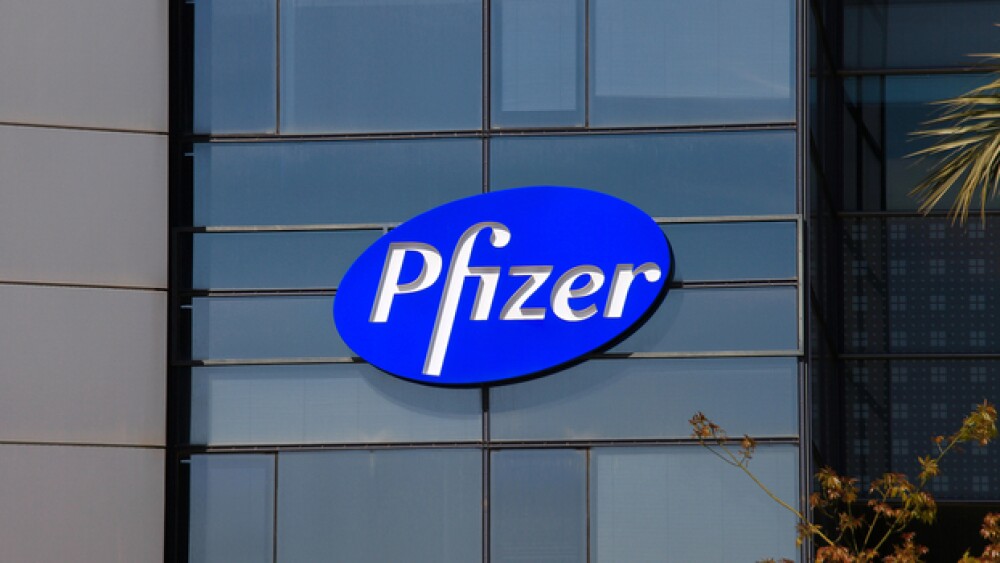Recently released documents indicate that Pfizer spent three years reviewing whether the science supported running a trial on Enbrel in Alzheimer’s.
StockStudio / Shutterstock
A recent story about Pfizer and its rheumatoid arthritis drug Enbrel highlights the difficult—and sometimes baffling—choices drug companies make. In 2015, Pfizer researchers were analyzing hundreds of thousands of insurance claims and noted that patients receiving the company’s Enbrel, an anti-inflammatory, seemed to have a reduced risk of Alzheimer’s disease—by a startling 64%.
The scientists in Pfizer’s inflammation and immunology division pushed management to run a clinical trial. The estimated cost of the trial would be $80 million, but if it panned out, it would open up a huge market for the drug, whose sales are on a downward slope. The company is focused on its replacement, Xeljanz, even though Enbrel brought in $2.1 billion in 2018.
Recently released documents indicate that Pfizer spent three years reviewing whether the science supported running a trial on Enbrel in Alzheimer’s. A PowerPoint slide from a February 2018 presentation stated, “Enbrel could potentially safely prevent, treat and slow progression of Alzheimer’s disease.”
But the company told The Washington Post that during those three years, they felt that the drug didn’t show promise for Alzheimer’s because it doesn’t directly reach brain tissue. So, they believed that the clinical trial’s chances of success would be low. Pfizer spokesman Ed Harnaga told The Post that the only reason the company didn’t go forward was the science.
That may or may not be reasonable, but the company’s decision not to release or publish the data is taking more criticism, with many researchers arguing they should have made that data available to researchers.
“Of course they should. Why not?” Rudolph E. Tanzi, a top Alzheimer’s researcher with Harvard Medical School and Massachusetts General Hospital.
In fact, in an interview with Tanzi earlier this year, he noted that more and more research is focused on the role of inflammation in Alzheimer’s, particularly as the amyloid-beta theory comes under fire. In Tanzi’s opinion, and there’s quite a bit of scientific research supporting it, amyloid and tangles trigger Alzheimer’s, but they’re not enough to cause dementia. But the amyloid and tangle-driven neuronal cell death eventually hits a point where the brain’s innate immune system reacts with significant levels of neuroinflammation. Tanzi told BioSpace, “Then, exponentially more cell death occurs, which leads to symptoms of dementia and Alzheimer’s disease.”
So it seems possible that a powerful anti-inflammatory like Enbrel could have a dampening effect on the entire immune system, which might decrease Alzheimer’s risk.
And Tanzi’s not the only researcher to question Pfizer’s decision not to release the data. “It would benefit the scientific community to have that data out there,” Keenan Walker, an assistant professor of medicine at Johns Hopkins, told The Post. Walker is also studying inflammation’s role in Alzheimer’s. “Whether it was positive data or negative data, it gives us more information to make better-informed decisions.”
It’s also notable that in January 2018, Pfizer announced it was abandoning research and development into new neuroscience drugs, including Alzheimer’s and Parkinson’s disease. It cut 300 jobs at that time, although it indicated it would continue working on tanezumab, a late-stage drug for pain it is developing with Eli Lilly and Co., and Lyrica, for fibromyalgia.
At the time, Pfizer stated, “This was an exercise to re-allocate spend across our portfolio, to focus on those areas where our pipeline, and our scientific expertise, is strongest.”
Pfizer, like many other drug companies, has had its share of Alzheimer’s drug failures. Although it is an investor in a venture capital fund, the Dementia Discovery Fund, launched in 2015, in 2012 it and Johnson & Johnson ended work on bepineuzumab after it failed to help Alzheimer’s patients in several clinical trials.
The Pfizer story has implications for Alzheimer’s research, but it also has something to say about the drug “life cycle.” Pharma companies have a 20-year period of patent exclusivity before they face generic competition. But in reality, it’s often much shorter because it takes on average about 10 years—if ever—to get a drug from discovery to commercialization, and patents are typically filed early in the discovery process. They can have a longer shelf life if they’re approved for new indications, because patents are generally filed to cover those new indications.
Pharma companies are often criticized for using this tactic to extend the patent life of a new drug, sometimes by making minor changes to the molecule or changing the delivery method. But as Robert I. Field, a professor of law and health care management at Drexel University told The Post, it’s a “heavy lift” to get a drug approved for a completely different disease. “Our patent laws do not provide the appropriate incentives.”
However, he added, drug therapy for early Alzheimer’s “would be a godsend for American patients, so we should be doing everything we can as a country to encourage development of treatments. It’s frustrating that there may be a missed opportunity.”
It also seems contradictory that when so many biopharma companies are investing in artificial intelligence and data mining of real-world evidence (RWE) such as the Pfizer scientists utilized in 2015, that they would then ignore what they found.
Newsletter Sign Up
Sign up to get the latest life sciences news and updates delivered straight to your inbox.





